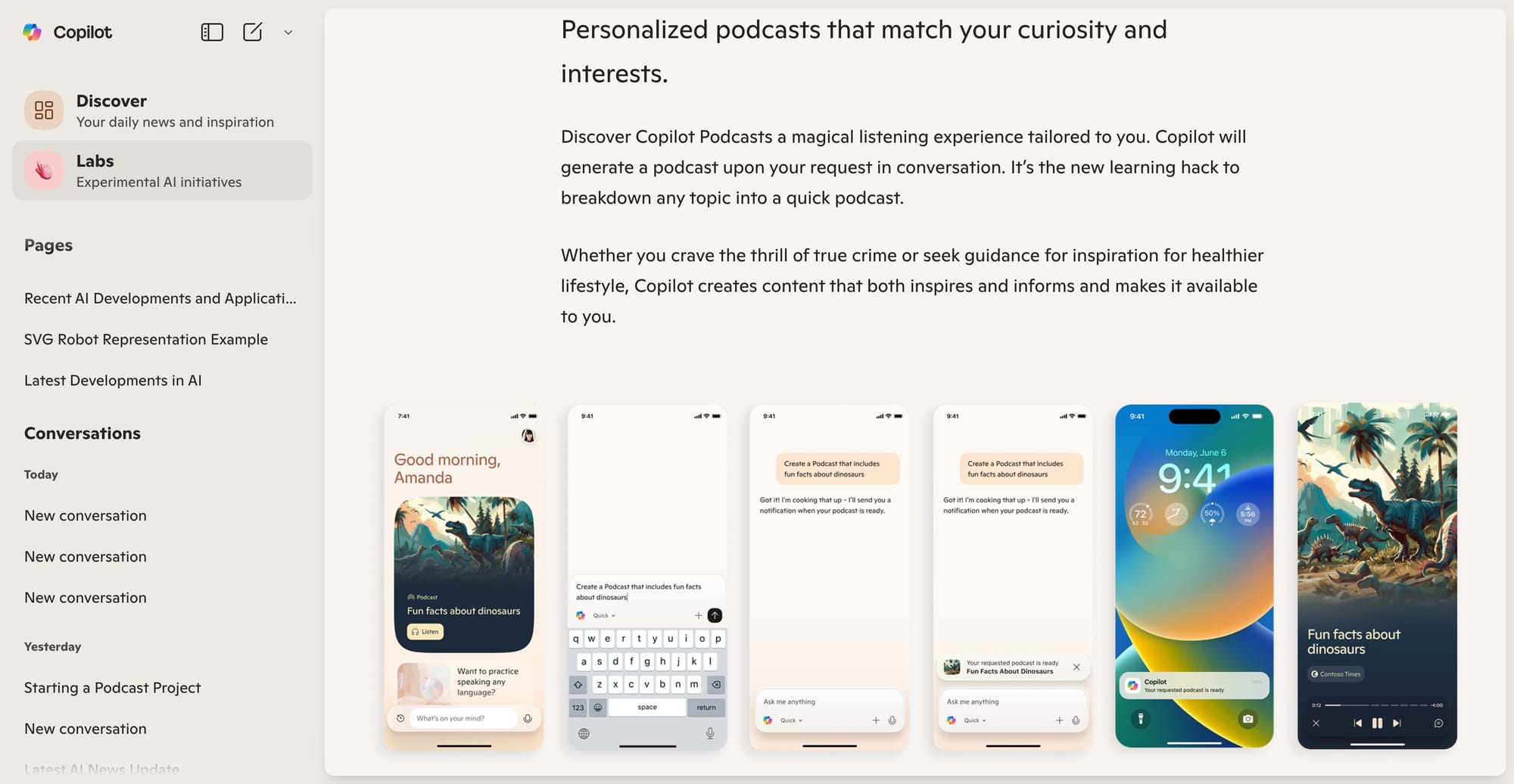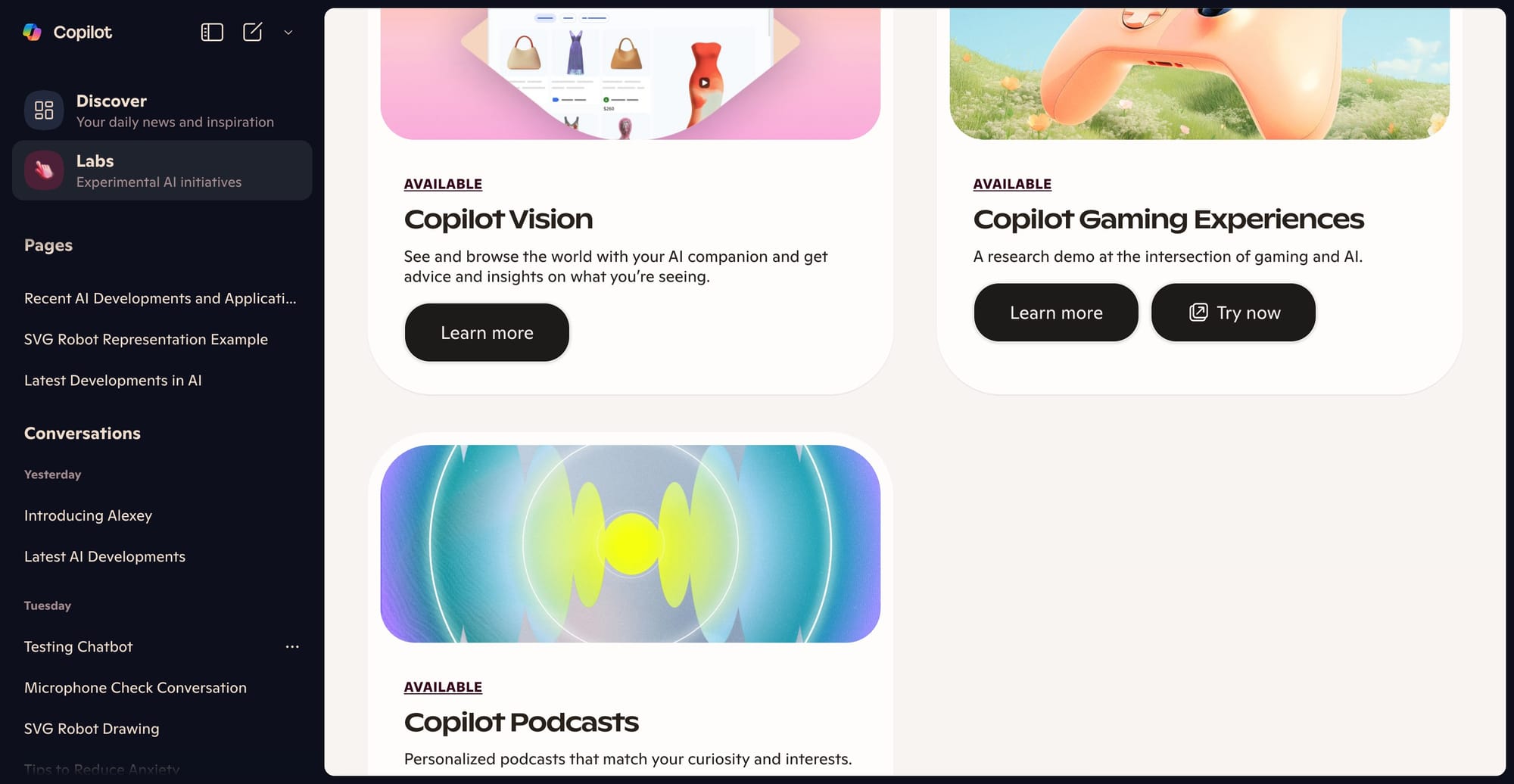Microsoft has introduced significant updates to its AI-powered Copilot chatbot, marking its 50th anniversary. Copilot now offers expanded capabilities, including web browsing and performing tasks on most websites. Users can instruct it to book tickets, make reservations, or shop online. Additionally, Copilot can analyze live video from mobile devices and respond to questions based on visual content, enhancing its multimodal functionality. Another key feature is memory retention, enabling personalized interactions by remembering user preferences like favorite foods or movies. Users have the option to manage or delete these memories for privacy control.

The updates also include a "Pages" feature, which organizes notes and research into a cohesive workspace, and a "Deep Research" function for synthesizing information from documents and images. On Windows devices, Copilot can interact with desktop screens to manage settings and files, initially available to Windows Insiders next week. For mobile users on Android and iOS, it can analyze images and answer related queries.
Missed the Copilot event livestream? Here's a breakdown of my new features—coming soon 👇🏼 pic.twitter.com/PmJ85Q3TRc
— Microsoft Copilot (@Copilot) April 4, 2025
These enhancements position Copilot as a competitor to AI tools like OpenAI's ChatGPT and Google's Gemini. However, concerns about its effectiveness remain, as Microsoft has not provided detailed performance data or addressed potential limitations. Industry experts have noted that Copilot may face restrictions from websites wary of reduced direct traffic affecting ad revenue.

Microsoft’s move reflects its broader strategy to integrate proprietary technology into Copilot, reducing reliance on OpenAI's models. While the updates aim to make Copilot more versatile, user feedback highlights mixed experiences with its functionality and privacy concerns regarding data tracking. As Microsoft rolls out these features, the reception will likely influence future iterations of the chatbot.






